Are you looking to switch up your baking adventures but intimidated by the thought of working with Aluminum Powder? Don’t be!
There are a variety of easy-to-find substitutes for Alum powder so that you can still make delicious treats.
In this post, we’ll break down 5 different ingredients that make excellent alum powder stand-ins and tell you how they interact differently when incorporated into recipes.
Read on for our super detailed guide to explore each ingredient’s unique properties and flavors!
What’s Alum Powder?

Alum powder is a type of natural astringent derived from aluminum sulfate.
It is commonly used in pickling recipes and as an external skin treatment, and is generally considered safe for most types of skin.
The powder has been used for hundreds of years as a home remedy for various ailments, such as puffy eyes, sore throats, and infections.
However, due to its potential toxicity, some people opt to use alternative substances or treatments in place of alum powder.
There are several ingredients that can be substituted for alum powder that could provide similar benefits without certain potential side effects.
These alternatives can include items that are commonly found in the kitchen cabinet such as baking soda, vinegar, or salt; products specifically designed for external treatments like witch hazel; and natural ingredients like sage leaves or poppies tea.
All five options are effective substitutes depending on the desired results.
5 BEST Alum Powder Substitutes You Should Try
1 – Pickling Spice
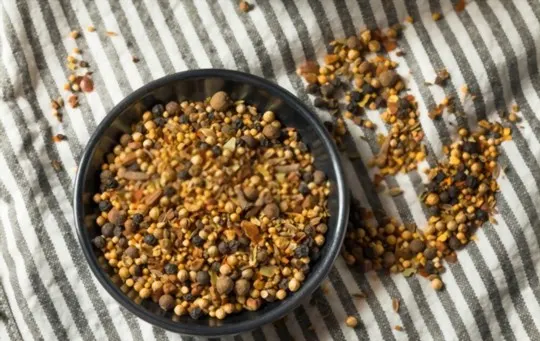
Pickling spice is sometimes recommended as a substitute for alum powder.
It can be obtained in any grocery store that carries spices and contains many of the same ingredients as traditional alum powder, such as allspice, mace, bay leaves, cinnamon, mustard seed, coriander seed, dill seed and red chile flakes.
The combination of these spices imparts a tangy flavor which can be enhanced by adding a touch of lemon juice or white vinegar.
Pickling spice may not work for all recipes containing alum powder but it can be used to create flavorful alternatives for pickling fish, eggs and meat.
2 – Cream Of Tartar
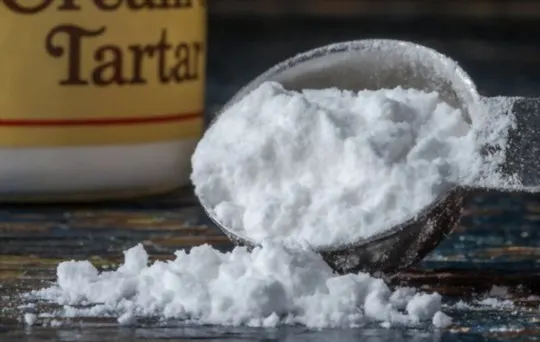
Cream of tartar, also known as potassium bitartrate or tartaric acid, is a by-product of winemaking and is derived from the grape.
It has a similar binding and thickening effect to alum powder, making it a good substitute in recipes.
Cream of tartar should be added to the dish in the same proportion as alum powder.
When using it in canning recipes, dissolve it in boiling water before adding it to the jars laden with jellies and jams – this will ensure that your preserves turn out just right.
Keep in mind that cream of tartar has a slightly more noticeable flavor than other substitutes, so if you’re looking for an even more subtle taste, then some other choices may be better options.
3 – Arrowroot Powder and Citric Acid
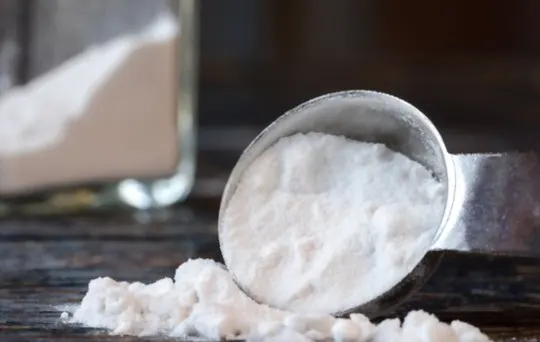
Arrowroot Powder and Citric Acid can serve as alternatives to alum powder.
This is because they have similar properties and have a much lower pH level.
Arrowroot powder is a natural grain-free flour used to thicken sauces or baked goods, while citric acid can be found in many types of acidic foods, such as lemons and limes.
The acidity of the citric acid works in a similar way as alum but doesn’t require the same bleaching process, which makes it an attractive alternative for those wanting a more natural product.
In order to use this option, you must mix equal parts of arrowroot powder and citric acid together with warm water until it has reached a thick consistency before applying it to your cloth or fabric for the desired effect.
4 – Lime

Lime, or calcium hydroxide, is one of the best substitutes for alum powder in preserving and pickling applications, as long as safety precautions are taken when handling the product.
When black fruit are to be pickled, lime should be used due to its bleaching properties — it will lighten the color of the fruit.
Lime can act in a very similar way to alum powder when used in pickles, jams and jellies.
It’s important to note that if you opt to use lime as your chosen substitute for alum powder that you may need to increase the amount of sugar used during canning in order to maintain a safe pH level.
The acidity of the solution must remain acidic enough throughout processing so that botulism spores do not become active.
In some instances, citric acid or vinegar is added on top of sugar when using lime as a substitute for alum powder.
Safe and consistent canning recipes should always be followed for your own health and safety.
5 – Ascorbic Acid
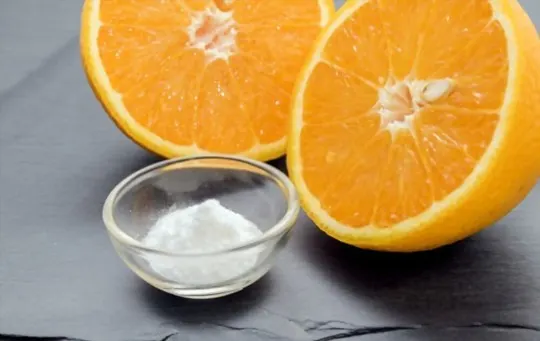
Ascorbic acid, also known as vitamin C, can be used as a substitute for alum powder.
Ascorbic acid is widely available, particularly among those looking for yeast or home-brewing products, so it is a convenient choice for substitution.
Ascorbic acid can be used to harden and preserve pickles in the same way that alum powder does and is non-toxic.
A good shelf-stable form of ascorbic acid that works well in substitution recipes is lemon crystals as they retain their hardness even when exposed to acidic ingredients.
To substitute with ascorbic acid use one teaspoon of vitamin C crystals or capsules dissolved in four cups of liquid.
For pickling purposes, a solution of four tablespoons of ascorbic acid to two quarts of water should work best.
Conclusion
In conclusion, alum powder is a key ingredient for pickling and baking, used since ancient times.
It has many health benefits and is relatively easy to find in stores and online.
However, if it is unavailable or undesirable, there are 5 great solid substitutes that can be used instead.
These are cream of tartar, egg whites or tofu firmness, casein powder or cottage cheese solids, vegetable gum or hydrocolloids such as xanthan gum, and arrowroot powder.
Be sure to choose the best substitute for your specific recipe and happy cooking.
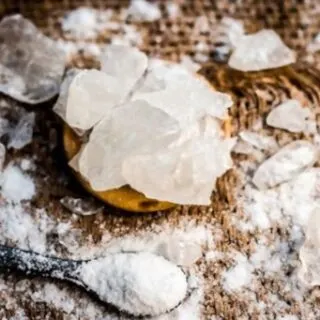
5 BEST Alum Powder Substitutes You Should Try
Ingredients
- 1 – Pickling Spice
- 2 – Cream Of Tartar
- 3 – Arrowroot Powder and Citric Acid
- 4 – Lime
- 5 – Ascorbic Acid
Instructions
- Choose your preferred substitute from the list of options.
- Organize all of your ingredients.
- Use the proper substitute to cook your recipes.

Carrie is a food writer and editor with more than 15 years of experience. She has worked for some of the biggest names in the food industry, including Bon Appétit, Food & Wine, and Martha Stewart Living.
As the Editor in Chief of IntroChicago.com, Carrie oversees all of the content on the site. She also manages the team of contributing writers and editors, who help to create delicious recipes, helpful tips, and informative articles that you’ll find on the site.
A native of the Chicago area, Carrie is passionate about all things food. She loves trying new restaurants and experimenting with new recipes in her kitchen. She’s also a graduate of the Culinary Institute of America, so she knows a thing or two about food!
